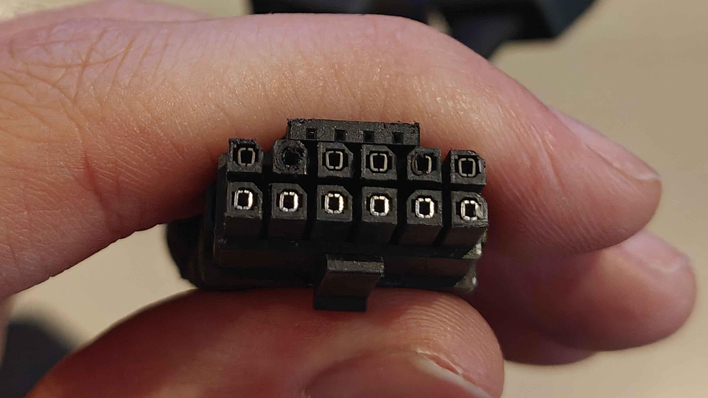Melting 16-Pin Power Connector Saga Tries To Claim A Radeon RX 9070 XT Victim
The tale started a month ago, when Savings made a post on the Radeon sub-Reddit, posting a couple pictures of the card-end of their adapter, showing slight discoloration. At the time, they spotted this during a motherboard swap. Plenty of users downplayed the photos, the majority claiming it was only a problem for NVIDIA cards. In proper Reddit parlance, though, that advice aged like milk.
Savings made an update post recently showing that the adapter had since burned up, though thankfully there was no apparent damage to his graphics card, an ASRock Taichi OC 9070 XT. The user points out that the adapter took three eight-pin power connectors and was only on its 4th mating cycle. Savings states that they bought a meatier power supply unit with a PSU-to-card cable to avoid using adapters entirely.

Source: Reddit user Savings_Opportunity3
While on that topic, plenty of readers were quick to point out that the 700 W Kolink unit that Savings was using was probably the culprit, but that's not a very easy sell for this scenario. If the PSU was being driven too hard, It would still require a very harsh voltage drop for the current to rise so much as to cause this problem. Additionally, OCP (over-current protection) would likely have kicked in, so we'd be talking multiple failures on the PSU side, never mind habitual crashes and/or excessive noise. In our view, the adapter is almost assuredly the part at fault.
One of the perennial issues with 12VHPWR connectors, is that the spec doesn't mandate load balancing across pins, and thus most board partners don't implement it, as the Actually Hardcore Overclocking channel found when looking into a Sapphire 9070 XT card. As ever, our own advice is to avoid adapters and buy an ATX 3.1 power supply if possible with the cable, or see if there's a cable kit for your unit. And naturally, do check that it's truly well-seated on the card. The newer 12V-2x6 standard that's retro-compatible tries to alleviate mating concerns, but it always pays to be wary.

